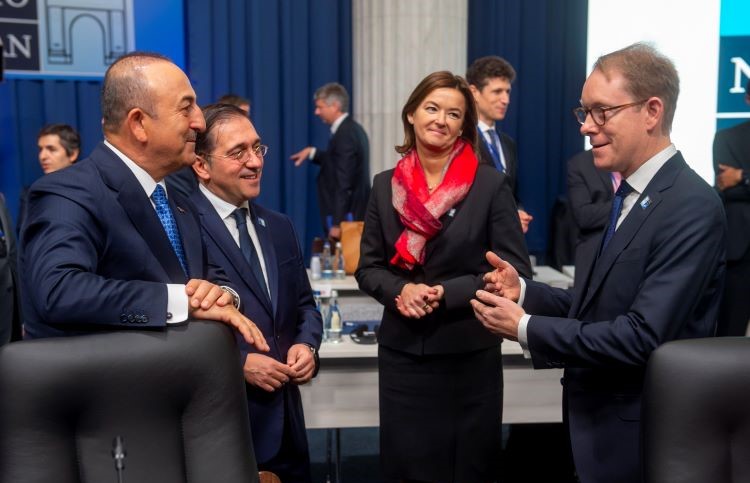The Diplomat
Foreign Minister Jose Manuel Albares said yesterday in Bucharest, on the occasion of the NATO ministerial meeting, that China can be “a partner for peace in Ukraine” thanks to its capacity for interlocution with Russian President Vladimir Putin.
“China occupies an increasing space in the international community and we have to decide when it is a competitor and when we can do things together, such as bringing peace to Ukraine, talking to Vladimir Putin or dealing with climate change,” the minister told reporters before the start of the second and final day of the Alliance ministerial. Later, after the meeting was over, Albares again told reporters that many ministers had “emphasized” the China-Russia link “from a double facet,” including its ability to bring peace to Ukraine. “China can play a role in moderating Vladimir Putin, in bringing back peace,” he said.
Yesterday’s day in Bucharest was devoted, above all, to “the long-term challenges posed by China,” NATO said in a press release. In this regard, the foreign ministers discussed “China’s ambitious military developments, its technological advances and its growing cyber and hybrid activities” and stressed the importance of “maintaining the Alliance’s technological edge and further strengthening cooperation with partners in the Indo-Pacific region and with the European Union”.
Likewise, Alliance Secretary General Jens Stoltenberg told a press conference yesterday that, just as the war in Ukraine exposed the dangerous dependence on Russian gas, “this should also lead us to assess our dependencies on other authoritarian regimes, including China, for our supply chains, technology or infrastructure.” “We will, of course, continue to trade and engage economically with China, but we need to be aware of our dependencies, reduce our vulnerabilities and manage the risks,” he added.
In this regard, Albares told reporters that NATO’s growing interest in China need not imply a neglect of other fronts, such as the South. The Southern Flank, he recalled, is “very clearly defined, precisely at Spain’s proposal,” in the Strategic Concept approved last June at the Alliance’s summit in Madrid. Apart from that, he continued, “many of the challenges we have encountered in the east, such as the use of gas or energy supplies as a weapon, the use of illegal immigration as a weapon or the fact that Russian threats are increasingly Russian threats from the south, all this is very clear to all the partners”.







